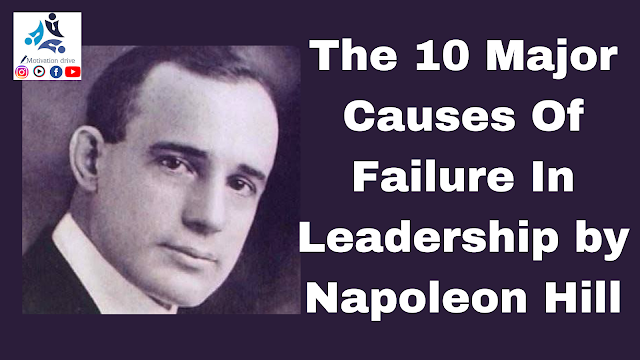Introduction In every workplace, social circle, or online space, you will find people with immense talent, sharp intelligence, and undeniable potential—yet they still struggle to be taken seriously. They get overlooked in meetings, interrupted in conversations, or dismissed before they even finish their point. Contrary to what many believe, this problem rarely stems from a lack of skills or capability. Most of the time, the real issue is rooted in subtle behaviors—small, almost invisible habits that quietly dilute your presence and weaken the impact you make. Respect isn’t demanded; it’s cultivated. And presence isn’t just about what you know—it’s about how you carry yourself, how you speak, and the standards you set. When your behavior sends the wrong signals, people subconsciously devalue your authority, no matter how talented you are. Below are the patterns that often cause people to discount your presence—patterns that most individuals never even realize are ...
Introduction
Leadership quality is something that most people want to develop to grow in their lives and grab bigger opportunities. These skills can be developed by us over time if we work on ourselves, be it in school or we can learn from our parents, community, etc. It can be in any part of our life including personal, professional, or social. One who can inspire others and set examples for others can be a good leader. To become a good leader, you need to learn, adopt and follow the qualities of great leaders. There are 10 major causes of failure in leadership given by Napoleon Hill in his book “Think and Grow Rich”.10 Major Causes Of Failure In Leadership
1. Inability to organize details:Efficient leadership requires the ability to organize details and master them. A genuine leader is never too busy to do anything or give attention to any emergency. Successful leaders must be the master of all the details connected with their position.
2. Unwillingness to render humble service:
Napoleon Hill suggests that great leaders are always willing to perform any sort of labor whenever the situation demands, that they would ask someone else to perform. All abled leaders respect the fact that “The greatest among ye shall be the servant of all”.
3. Expecting pay for knowledge rather than work:
Another big reason for failure in leadership is that people expect to pay for what they know rather than the work that they do with their knowledge. In reality, the world does not pay men for their knowledge instead it pays them for the work that they do, or induce others to do.
Understand the importance of relationships in our life through this video:
4. Fear of competition from followers:
An insecure leader is one who fears that his followers may take his position. A good leader trains people under him to multiply himself so that he may delegate details of his position at will. It is a well-known truth that people who get others to perform receive more pay than those who earn from their own efforts.
5. Lack of imagination:
A great leader needs to have great imagination as well. If a leader has no imagination, he/she won’t be able to handle emergency situations or create any plans for guiding his followers. Therefore it’s a very important skill that a leader needs to develop.
6. Selfishness:
A major cause for failure in leadership mentioned by Napoleon Hill in his book ‘Think and Grow Rich' is selfishness where a leader takes credit for all the work done by his followers. Such a person will definitely face resentment as real leaders never claim any honor and are contended to see them go to their followers for their hard work.
7. Intemperance:
The seventh cause for failure in leadership given by Napoleon Hill in his book ‘Think and Grow Rich' is the intemperance of the leader as the followers do not like or respect an intemperate leader. Intemperance of a leader in any form destroys the endurance and vitality of all those people who are indulged in it.
An insecure leader is one who fears that his followers may take his position. A good leader trains people under him to multiply himself so that he may delegate details of his position at will. It is a well-known truth that people who get others to perform receive more pay than those who earn from their own efforts.
5. Lack of imagination:
A great leader needs to have great imagination as well. If a leader has no imagination, he/she won’t be able to handle emergency situations or create any plans for guiding his followers. Therefore it’s a very important skill that a leader needs to develop.
6. Selfishness:
A major cause for failure in leadership mentioned by Napoleon Hill in his book ‘Think and Grow Rich' is selfishness where a leader takes credit for all the work done by his followers. Such a person will definitely face resentment as real leaders never claim any honor and are contended to see them go to their followers for their hard work.
7. Intemperance:
The seventh cause for failure in leadership given by Napoleon Hill in his book ‘Think and Grow Rich' is the intemperance of the leader as the followers do not like or respect an intemperate leader. Intemperance of a leader in any form destroys the endurance and vitality of all those people who are indulged in it.
8. Disloyalty:
Napoleon Hill suggests that Loyalty is the most important quality of a leader but if a leader is not loyal to his trust, his associates, and the people around him, he won’t be able to maintain his leadership for long. Lack of loyalty is one of the major causes of failure in leadership and in every walk of our lives.
9. Emphasis of the “Authority” of Leadership:
Another reason for failure in leadership according to Napoleon Hill is the authoritative behavior of a leader where he tries to impress his followers by leadership through force. An efficient leader is one who leads by encouraging his followers and not by instilling fear in them.
10. Emphasis of title:
Napoleon Hill in his book ‘Think and Grow Rich' suggests that a competent leader does not require any “title” for gaining the respect of his followers. A real leader is always open to ideas, and suggestions, and his office doors are open to all who wish to enter and are free from any formality.
Napoleon Hill suggests that Loyalty is the most important quality of a leader but if a leader is not loyal to his trust, his associates, and the people around him, he won’t be able to maintain his leadership for long. Lack of loyalty is one of the major causes of failure in leadership and in every walk of our lives.
9. Emphasis of the “Authority” of Leadership:
Another reason for failure in leadership according to Napoleon Hill is the authoritative behavior of a leader where he tries to impress his followers by leadership through force. An efficient leader is one who leads by encouraging his followers and not by instilling fear in them.
10. Emphasis of title:
Napoleon Hill in his book ‘Think and Grow Rich' suggests that a competent leader does not require any “title” for gaining the respect of his followers. A real leader is always open to ideas, and suggestions, and his office doors are open to all who wish to enter and are free from any formality.


Comments
Post a Comment
Please do not add any spam link in the comment box